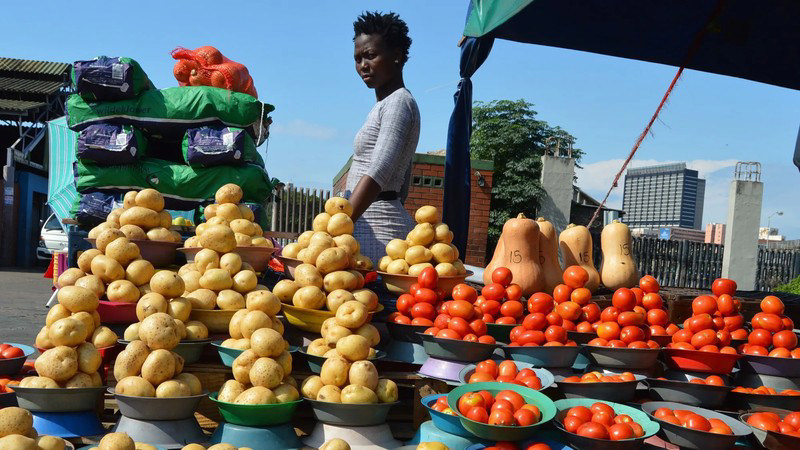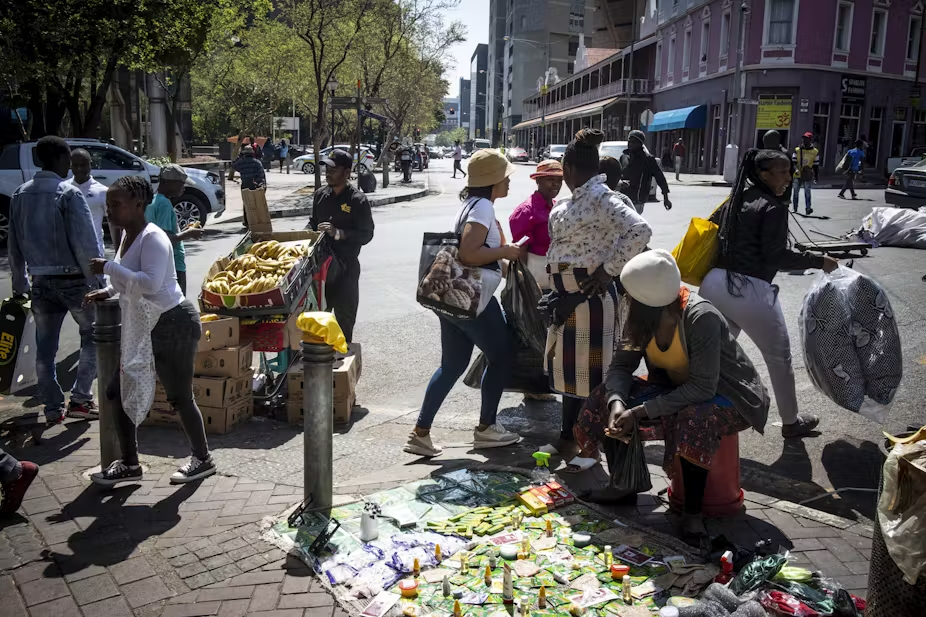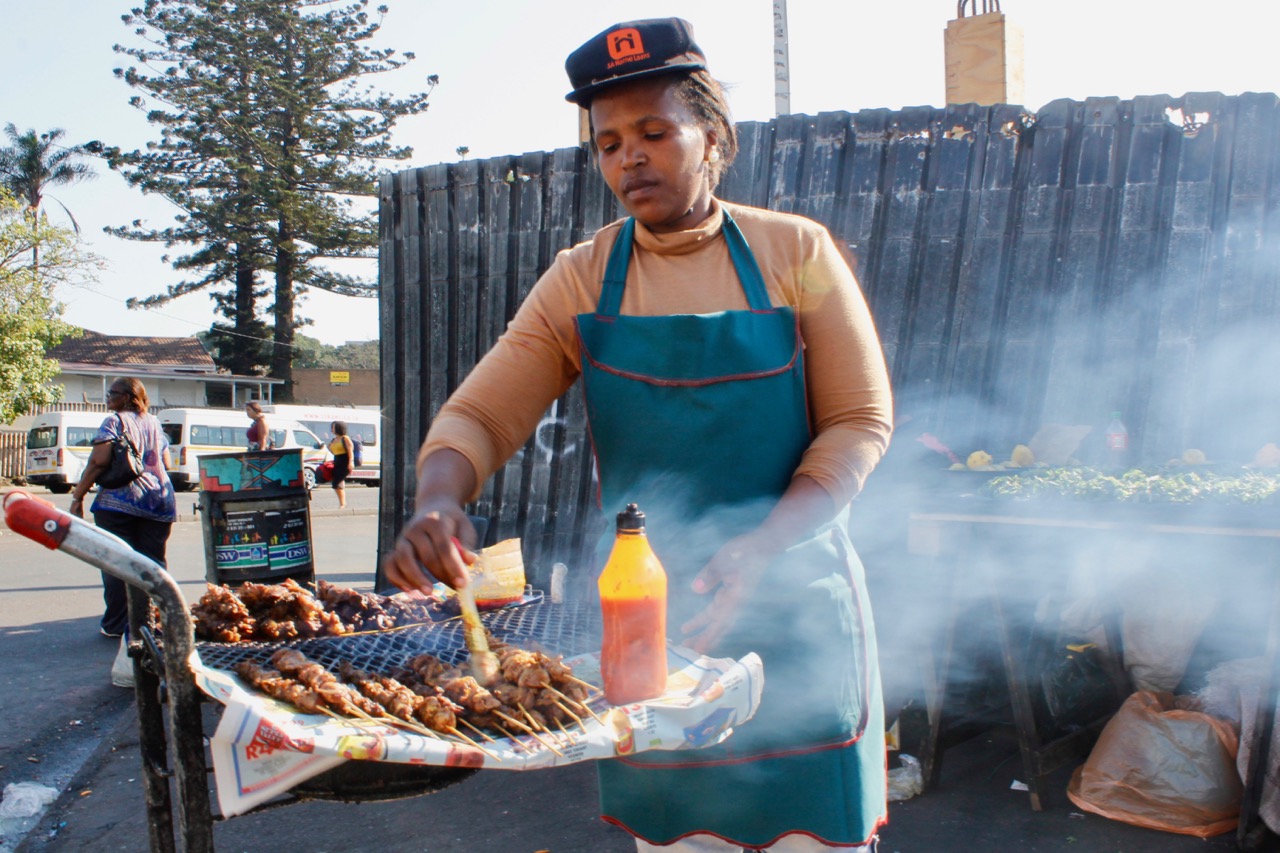Educate yourself on the way immigrants are changing the informal economy of South Africa. Are they advocating for local commerce or diminishing the number of South African workers? A candid, accurate analysis of both parties.
The informal economy of South Africa is enormous, complex, and crucial. From vendors of street food and car washes to construction workers and domestic workers, the sector employs thousands of people, particularly in urban and municipal areas. At the core of this diverse ecosystem is a growing number of immigrants, both legal and illegal, that has led to a heated discussion: Are they benefitting or detrimental to local employment?
With formal employment opportunities limited and unemployment at over 32%, many citizens feelpressed. Meanwhile, immigrant entrepreneurs and workers are often considered to be either part of the grassroots economy or to be competition that diminishes wages. This article investigates the actual role of immigrants in the informal economy of South Africa, it differentiates between myth and reality, and it suggests possible routes towards sustainability and coexistence.

What is the informal economy?
The informal economy is the term for economic activity that is not formally sanctioned by the government. These include:
Street selling
• Personal transportation (e.g. mini-bus transportation)
Domestic endeavors
Informal methods of building and mending are employed.
Recycling and waste collection.
Home-based organizations
In 2023, it was expected that between 25% and 35% of the South Africa workforce was employed informally, many of them without formal contracts, security, or consistent income.
Immigrants in the informal sector
Immigrants, especially from Africa, participate actively in this profession. Their importance is more apparent of:
Spaza stores (neighborhood stores)
Street selling
Hairdresser and tailor
• Car safety and waste disposal
• Building and labor-intensive construction
Why do immigrants take over parts of the market that are already occupied?
Accepting lower salaries or living in the local area
• Expanded international supply chains
Support from communities of origin
Lower employment opportunities due to documentation issues

Immigrants’ benefits
1. The creation of jobs and economic activity.
Many immigrant-operated businesses have local employees, especially in retail, transportation and food production.
A study from 2020 found by the Gauteng City-Region Observatory (GCRO) that 42% of foreign-owned spaza stores have at least one employee from South Africa. These companies also promote local supply chains, take rental payments from landlords in South Africa and purchase goods directly from the country. This increases the local economy.2. filling employment gaps
In regions that locals avoid informal employment due to low salaries or lack of stability (e.g. domestic jobs, waste disposal), and immigrants often take part in, which ensures the continued provision of services.
3. Price competition and consumer access
Immigrants often sell goods at a lower price, which benefits low-income consumers. Their supply chains and long hours of employment contribute to the basic cost of goods in informal settlements.
Opportunities and perceived dangers
1. Low wages and competition in the employment market.
Many southern Africans believe that immigrants are prepared to accept lower wages and deplorable conditions, this is detrimental to the local population.
This understanding inspires resentment and promotes ethnic violence in cities and towns.
2. Avoiding oversight
Undocumented immigrants often lack business licenses, fail to pay taxes, and do not comply with local regulations. This leads to unequal competition with local suppliers who are docile.3. Control of informal commerce
In some regions, immigrants have become the majority of informal traders, particularly in spaza shops and portable markets. This has led to concerns about the marginalization of locals.
Government practices and ambiguous laws
The immigration and labor laws of South Africa are often misconstrued or lacking in consistency. Main difficulties include:
• Difficulty obtaining work licenses, especially for those that are low-income or untrained.
Incomplete or lacking business licenses in informal areas.
Police intimidation and coercion are also targeting both local and foreign informal businessmen.
• Support that is limited to micro-entrepreneurs, regardless of their country of origin
These discrepancies facilitate tension to grow without restraint, as law enforcement is often insufficient in addressing the problem.
Chart: The growth of informal businesses owned by immigrants (2010-2023).
Authors: GCRO, Stats SA, and the African Center for Migration and Society

Case studies
The Johannesburg Center for Business Development
Ethiopian and Somali vendors have formed close ties, they share space in the spaza, pool their capital and have a controlling influence over the area’s trades – these sometimes leads to conflict with African vendors regarding territory.
Cape Town Municipality
Malawi and Zimbabwean workers participate in informal building projects. Many are favored for their abilities and dependability, but they earn less than the minimum wage, which leads to conflict.
Durban and the Eastern Cape
Waste pickers from Mozambique and Lesotho have documented the frequent intimidation and extortion from local officials, despite their attempts to improve the sanitation in cities.
Routes to Simultaneity and Economic Accord
To convert the informal economy into a space for inclusion instead of dispute, the following steps are crucial:
1. Legalization and documentation initiatives
Allowing immigrants to legally status regular would reduce exploitation, increase tax compliance, and equal the playing field.
2. Help for local small businesses
Provide instruction, micro loans, and startup grants to both locals and immigrants, based on objective criteria that are not based on national origin.
3. Business interactions between local residents and the corporation.
Support the creation of cooperatives that promote community development and encourage economic cooperation instead of competition.
4. Community conversations and conflict resolution
Help grassroots initiatives dedicated to peace projects to dispel falsehoods, reduce racism, and promote collective prosperity.5. More effective enforcement of informal trade rules
Standardized licenses, markets, and regulations would promote more equal conditions and reduce conflict.
Immigrants aren’t inherently a danger or savior in the South African informal economy – they are part of a complex system that requires careful management and inclusive development.
Instead of harboring a negative attitude towards immigrants, Africa must address the causes of inequality, they must also regulate the informal economy and provide opportunities for all. Only then can the informal economy become a significant driver instead of a harbor of resentment.
FAQ – Frequently Asked Questions
1. Do immigrants contribute to taxes if they rely on their knowledge of the law?
Typically, they do not pay the VAT or municipal fees directly, but still do so indirectly.
2. Do immigrants take jobs from African Americans?
Not in the manner that I intended. They frequently fill in areas that locals choose not to engage in.
3. Why do immigrants have control over spaza stores?
Extensive business connections, longer hours and the capacity to operate at a thin profit.
4. Is it permissible for undocumented immigrants to own a business?
Technically, no one uses firearms, but law enforcement is lacking and the licensing options are diminish.
5. What is the government attempting to resolve with regard to the stress in informal trade?
Many of the countries’ enforcement actions are primarily reactive, but some have adopted inclusive policies towards trade.
6. Can the locals and immigrants collaborate in business?
Yes, and in some areas cooperatives and shops that are jointly owned are being formed.
7. How can the fear of immigrants in small business be diminished?
Through instruction, fair treatment, economic participation and political oversight.
